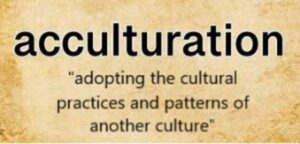We can neglect the discipline of understanding the nations next door, who are among us in our neighborhoods. Some say, “It takes too much time to get to know and understand the nations among us; all we need to do is share the gospel, and they will respond.”
In cross-cultural settings, miscommunication often occurs. Even more so, communicating the gospel message through one’s worldview lens can easily offend people for the wrong reason instead of the right reason.
Our example for understanding the nations among us and their specific worldview rests in living out the incarnational model of Jesus Christ. The Scripture states,
Who, being in the very nature of God, did not consider equality with God something to be used to his advantage; rather, he made himself nothing by taking the very nature of a servant, being made in human likeness. And being found in appearance as a man, he humbled himself by becoming obedient to death — even death on a cross!
– Philippians 2:6-8, NIV
The incarnation, the Ultimate God clothed in human form as an Intimate Savior, is a perfect model for encountering the nations among us and learning their worldview perspective.
A simple working definition of incarnational missions is “the immersion of one’s self into a local culture and ‘becoming Jesus’ to the nations among us.”
An Approach for Ministering to the Nations Among Us
An Incarnational mission approach seeks to dispense with ministry “from a distance” and embrace ministry “up close and personal”— the love of God and the gospel of Christ are “incarnated” or embodied by the person ministering. This up-close and personal approach is commonly known as acculturation.

Just as the Son of God took on human flesh and came into our world, we should encounter the ethno-linguistic people to whom we are ministering and “become Jesus” within their culture.
Practicing Incarnational Ministry
A few signs of practicing an Incarnational Ministry among ethnolinguistic people include:
1. Eat what the Nations among us eat, no matter whether you want to or not. You never know; you might acquire a taste for their delicacies.
2. Practice an open-door policy in daily lifestyle and ministry. Welcome the nations among us in your home, no matter the time, whether planned or they show up at your home.
3. Seek to contextualize the gospel message so that it makes sense to their worldview perspective.
Reflection Activity
What other signs indicate we are living an incarnational lifestyle among ethno-linguistic people? As you answer this question, remember:
• Participation is not a choice – how we participate is a choice.
• Take time to reflect upon signs of how you can live an incarnational life.

